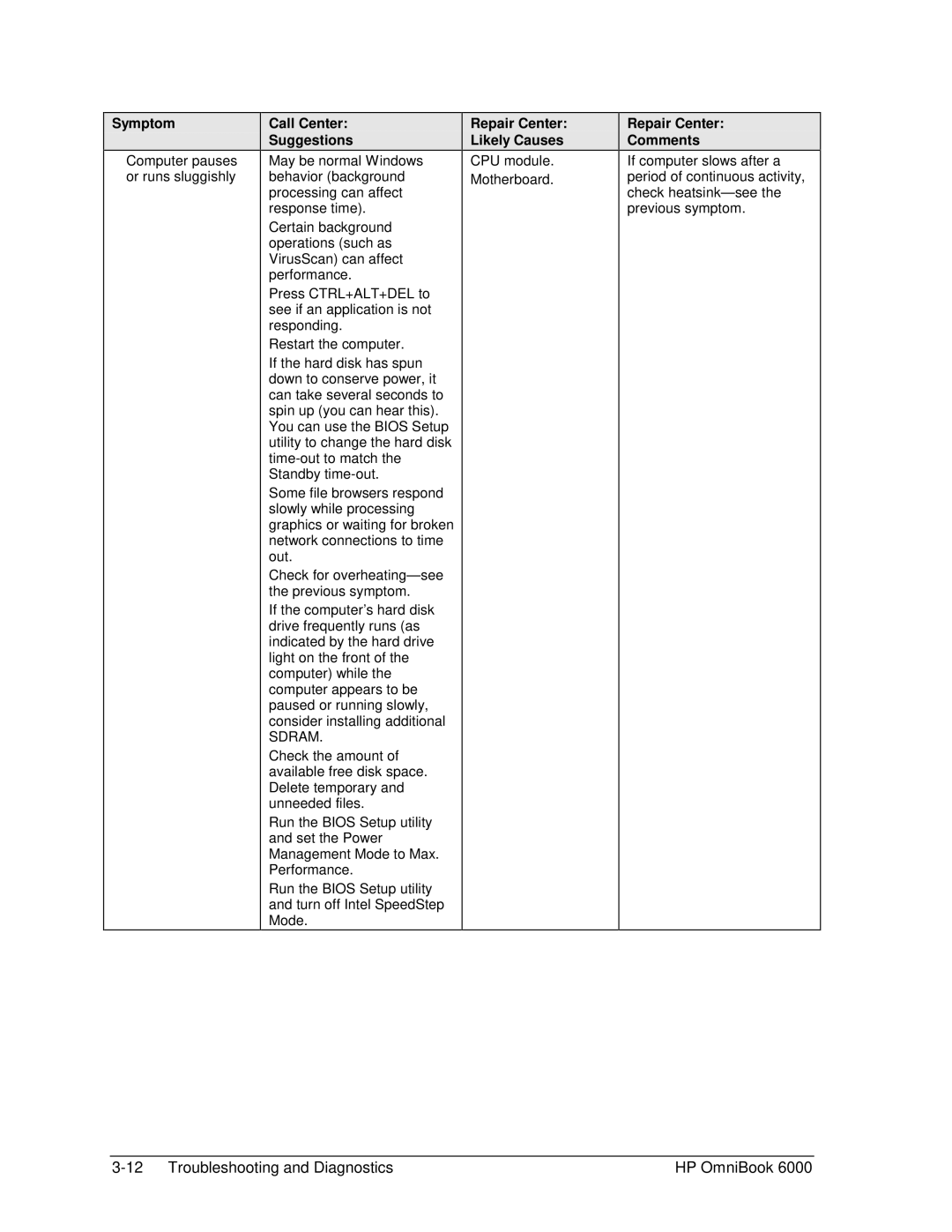
Symptom
Computer pauses or runs sluggishly
Call Center:
Suggestions
May be normal Windows behavior (background processing can affect response time).
Certain background operations (such as VirusScan) can affect performance.
Press CTRL+ALT+DEL to see if an application is not responding.
Restart the computer.
If the hard disk has spun down to conserve power, it can take several seconds to spin up (you can hear this). You can use the BIOS Setup utility to change the hard disk
Some file browsers respond slowly while processing graphics or waiting for broken network connections to time out.
Check for
If the computer’s hard disk drive frequently runs (as indicated by the hard drive light on the front of the computer) while the computer appears to be paused or running slowly, consider installing additional
SDRAM.
Check the amount of available free disk space. Delete temporary and unneeded files.
Run the BIOS Setup utility and set the Power Management Mode to Max. Performance.
Run the BIOS Setup utility and turn off Intel SpeedStep Mode.
Repair Center: Likely Causes
CPU module. Motherboard.
Repair Center:
Comments
If computer slows after a period of continuous activity, check
HP OmniBook 6000 |
